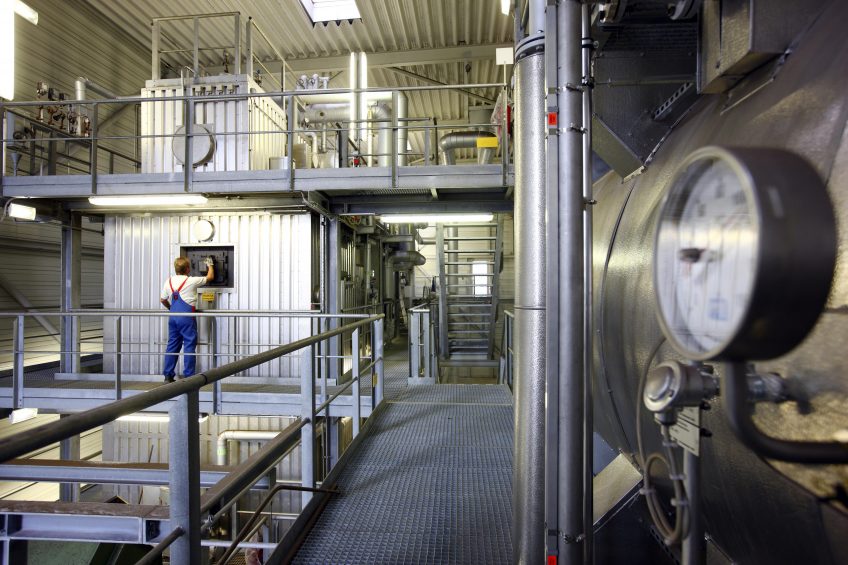Cash-for-ash scandal implicates poultry farmers

Incentives to produce heat using renewable energy brought down Northern Ireland’s government. Poultry farms were right in the middle of the political storm.
Poultry producers have been made scapegoats in the cash-for-ash scheme scandal that led to the collapse of the Northern Ireland government, according to the Ulster Farmers Union (UFU).
Officially known as the Renewable Heat Incentive (RHI) scheme, it was launched in 2012 to encourage businesses to install green energy, woodchip boilers.
But it was dubbed the cash-for-ash scandal because its payment structure had no financial cap and, without a ceiling on payments, participants allegedly produced large quantities of heat unnecessarily.
A cap was eventually imposed in November 2015 when politicians realised costs were spiralling out of control. But by the time the NI government shut down the scheme, in February 2016, the final bill for the 20-year contracts had hit an estimated £1.1bn.
The ensuing political row over who was to blame for the scheme’s design failings sparked resignations at Stormont and the government collapsed.
As the search to establish what went wrong intensified, farm businesses came under increasing pressure because they made up a large proportion of those who signed up. Of the 2,000 businesses enrolled, 871 were poultry units.
One farmer has spoken out publicly against the critics. In an interview with the Belfast Telegraph, Co Armagh farmer Ian Marshall, likened the pressure on farmers to a ‘witch hunt’.
“The genuine businesses that have joined the scheme are being made to feel like criminals,” he told the newspaper.
Mr Marshall added that like many the scheme had cost him money, as he had invested thousands of pounds up front to install a woodchip drier.
Now an official inquiry is expected to continue to focus on farms at the centre of the issue.
But the UFU has released a statement defending the poultry farmers involved, saying they were facing unfair criticism for their legitimate use of the scheme.
The union said: “In the absence of an explanation for the failure to design an effective scheme, some people are now treating users of the RHI as scapegoats.
“Poultry farmers were encouraged – by politicians, banks and processors – to take part in the scheme to reduce costs and to produce birds from sites with lower carbon credentials.
“With energy options limited in rural areas it was no surprise farmers would use the RHI to cut costs.”
The union added that the focus of the inquiry must remain on the core issues of how a scheme with such poor controls was put in place, and why advice about the risks was ignored by civil servants and politicians.
The UFU said it wanted a backlog of audits on poultry units to be completed more quickly so that farmers could be cleared and those misusing the scheme identified and penalised accordingly.
And it pledged to oppose any attempts to change the contracts of existing users who had invested heavily on the basis of assurances of future support, in the same way that other renewable energy systems include long term funding commitments from government.
Why did the government collapse?
The political meltdown in the province resulted from first minister Arlene Foster’s refusal to step aside while an investigation into the scheme was conducted. Ms Foster had been DETI minister when the scheme was introduced in 2012. Her refusal to move over triggered other resignations including deputy Martin McGuiness and the government collapsed.
Where the scheme went wrong
A report by the NI Audit Office said the Department of Enterprise, Trade and Investment (DETI) had made ‘a critical mistake’ when it failed to cap payments at the outset of the scheme in November 2012. Unlike a similar scheme in GB, which had a cap on total payments and a tiered system that meant the unit price declined as more energy was produced, the NI version was set up without financial limits.
When changes including a cap were announced in September 2015 potential applicants were given until November 2015 to join the scheme under the original terms. That caused a spike of applications that increased the scheme’s membership from 984 to 1946 in a few weeks and almost doubled the scheme’s cost.
The situation was muddled further by private consultants who incorrectly believed boiler running costs were higher than tariff rates. Any notion of excessive profit-making never materialised.
Oversupply of energy was also overlooked as an issue because the initial uptake of the scheme was very low.
All of these points were compounded by a lack of review procedure which meant the spiralling cost went unchecked.









